CBO: Raising the federal minimum wage would lift millions out of poverty — but there's a downside
Amid all of the changes in the U.S. over the last decade, one thing has remained steady: the federal minimum wage, which has sat at $7.25 since July 2009.
House Democrats passed a bill in July 2019 to raise the federal minimum wage to $15 an hour by 2025, and the bill has not yet been addressed by the Senate.
As legislative wheels turn, recent research from the Congressional Budget Office (CBO) argued that a $15 (or even $12) federal minimum wage in 2025 would boost income for millions of workers but cost jobs and worsen poverty levels for some families.
“Increasing the minimum wage would have two principal effects on low-wage workers,” the CBO report stated. “For most of them, earnings and family income would increase, which would lift some families out of poverty. But other low-wage workers would become jobless, and their family income would fall — in some cases, below the poverty threshold.”
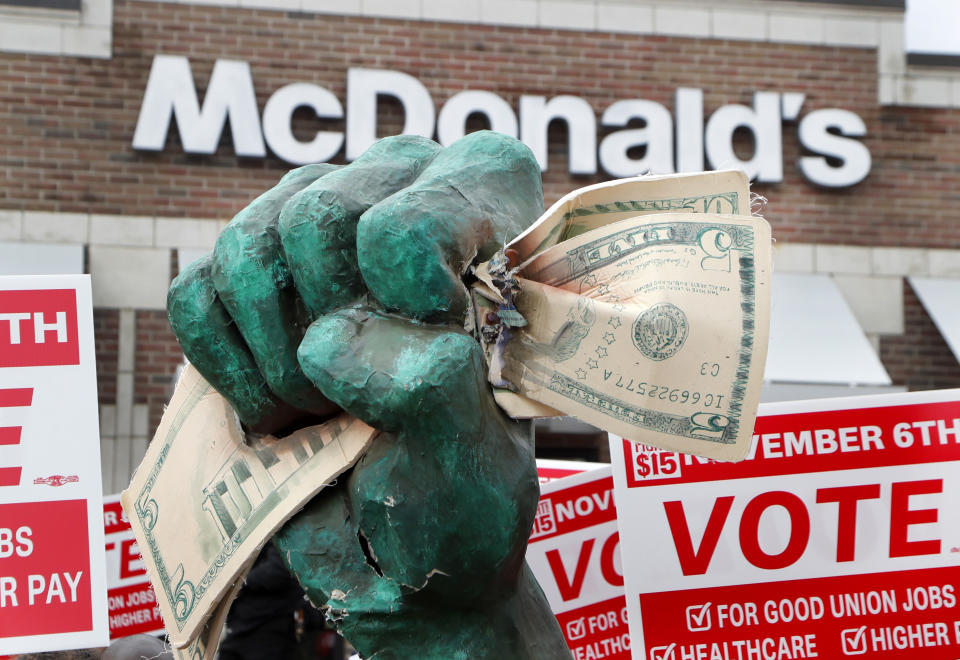
Supporters of raising the federal minimum wage and some experts disagreed with the CBO’s findings when it came to jobs lost.
“There’s a lot of turnover in a low wage labor market,” Heidi Shierholz, senior economist and director of policy at the left-leaning Economic Policy Institute (EPI), told Yahoo Finance. “So if we have an employment decline in a labor market like that, it doesn’t necessarily mean people are getting pink slips. You have people going in and out of jobs, so there are fewer jobs. It just means that people spend a little more time looking for jobs than they otherwise would have. But then when they do get the jobs, they make a lot more money.”
Rep. Bobby Scott (D-VA), who introduced the Raise the Wage Act that passed the House, told Yahoo Finance that the “idea that you’re losing any jobs is ridiculous.”
In any case, minimum wages are already increasing across the country as some U.S. states and cities raised their own wages to try to keep up with inflation. California and Washington now have the highest minimum wages, at $13.00 and $13.50, respectively. On the other side of the spectrum, nine states don’t have their own minimum wage.
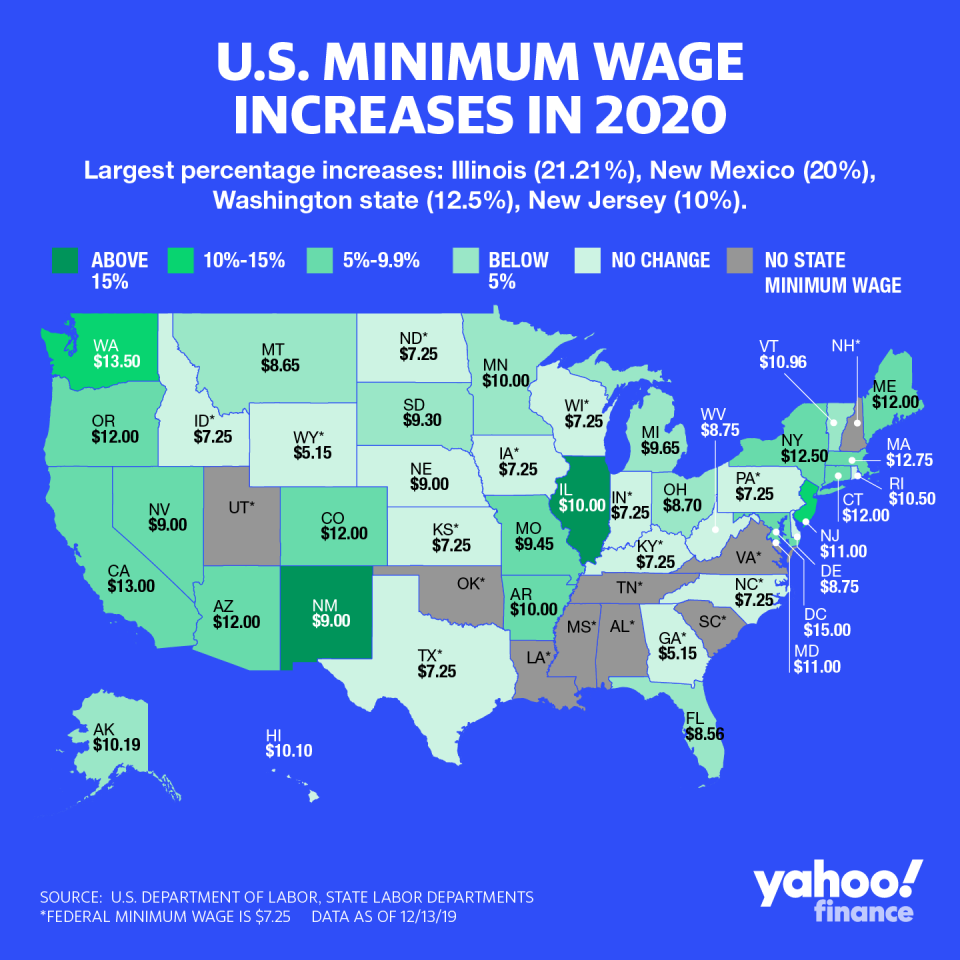
CBO estimates a ‘decline in the nation’s stock of capital’
According to the CBO, a $15 federal minimum wage would provide families with income below the poverty threshold an additional $8 billion in income in 2015 and lift roughly 1.3 million people out of poverty. Families above the poverty line, though, would see a $16 billion drop in real income, about a 0.1% reduction.
Furthermore, CBO estimated that the change would lead to 1.3 million fewer workers in an average week of 2025. For a $12 minimum wage, there would be 300,000 fewer workers. There would be no change in employment with a $10 minimum wage.
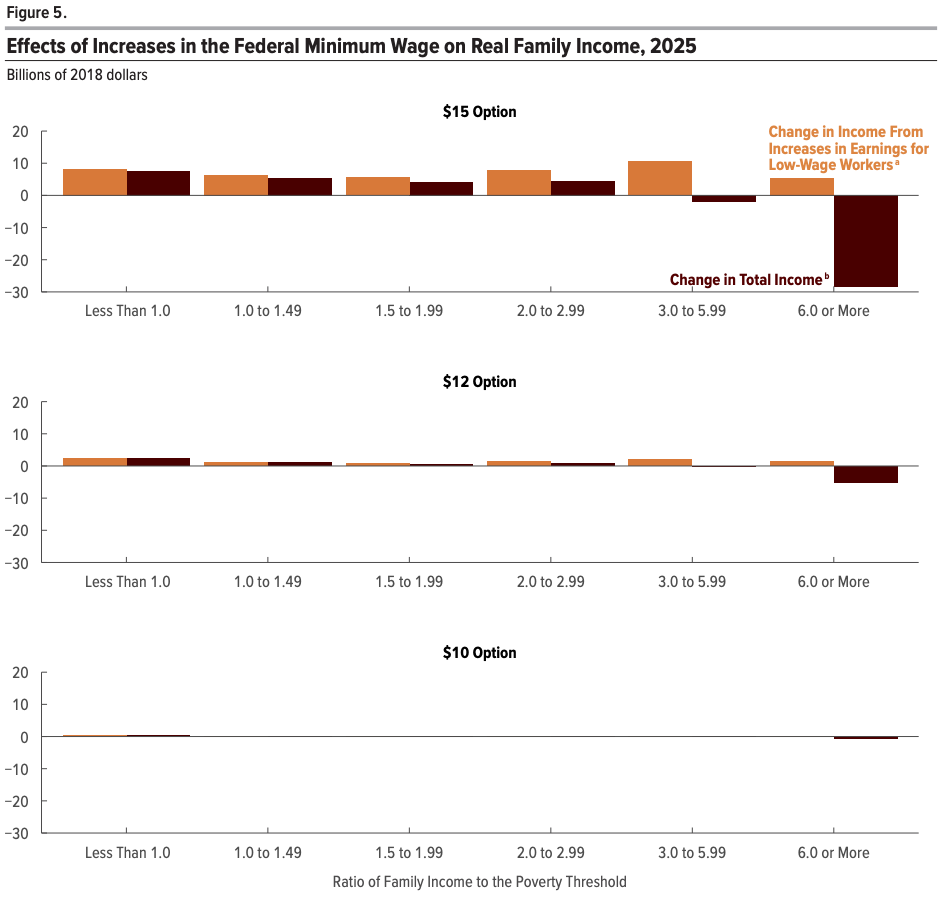
Ultimately, the CBO argued, a $15 federal minimum wage would reduce business income, raise prices, and lead to a “decline in the nation’s stock of capital” because of the employment decline.
Shierholz countered that the CBO report “overstated the job loss impact, the amount of jobs that will be lost as a result of a $15 minimum wage,” arguing that the CBO’s report did not fully address “what an employment decline really means in a lowest labor market due to all the turnover.”
Nevertheless, Shierholz concluded, “their bottom line that a $15 minimum wage in 2025 would reduce inequality, reduce poverty of low wage workers, leave low wage workers, increase total wages going to low wage workers, leave low wage workers as a group is unambiguously better off.”
‘People can’t buy modest housing’
One of the biggest arguments for raising the federal minimum wage is the need to address cost of living in the U.S.. Rep. Scott stressed that raising the minimum wage is an essential move to providing affordable housing across America.
“You’ve seen the statistic that there’s no county in the United States where a full-time minimum wage worker, 40 hours a week, can afford a modest two-bedroom apartment,” he said. “I’m not talking about in San Francisco and Manhattan — I’m talking about not a single county in the United States. ... If you’re doing okay, you can’t enjoy life if you know a lot of people that can’t make it.”
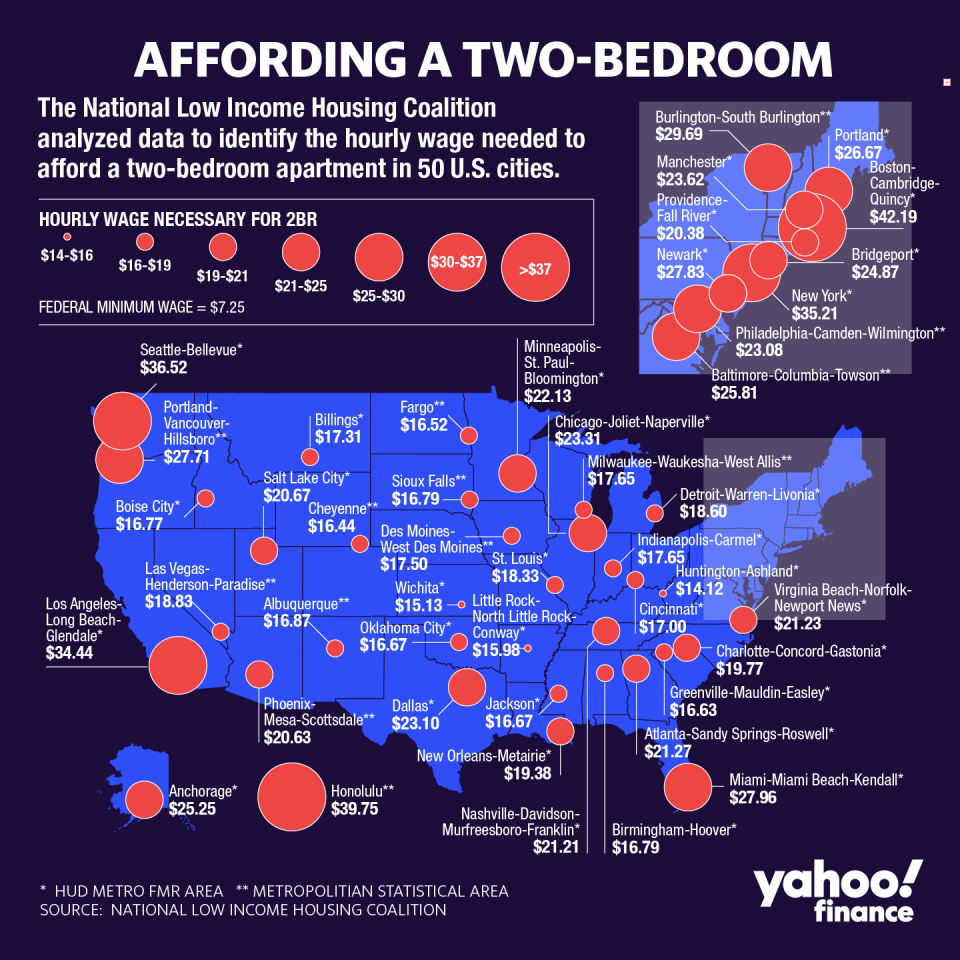
According the National Low Income Housing Coalition (NLIHC)’s 2019 Out of Reach Report, $22.96 is the 2019 national housing wage for “a modest two-bedroom rental home” and $18.65 is the baseline for a one-bedroom. Based on the $7.25 federal minimum wage, someone earning that amount would need to work 103 hours per week to afford a one-bedroom or 127 hours per week for a two-bedroom.
“The fact that people can’t buy modest housing, it’s got to be a concern for everybody,” Scott said. “Raising the minimum wage would get people out of poverty. We haven’t raised the minimum wage in 10 years. ... It’s way past time. And we expect a democratic society where everybody can participate.”
‘Where’s the evidence?’
A frequent argument against raising the minimum wage is the effect it would have on small businesses. After New York City raised its minimum wage to $15 an hour, many business owners indicated that it forced them to have to cut staff and raise prices.
“With raising minimum wage to living wage, it feels now like we’re at the bottom of the pay spectrum,” Sarah McNally told the Wall Street Journal. “There’s absolutely no benefit to being a retail business in New York.”
Rep. Scott’s response: “Where’s the evidence? They say it’s the minimum wage. They didn’t say anything about rent increases. They didn’t say anything about food increases. ... As soon as somebody gets a fair wage, all of a sudden, it puts you straight out of business.”
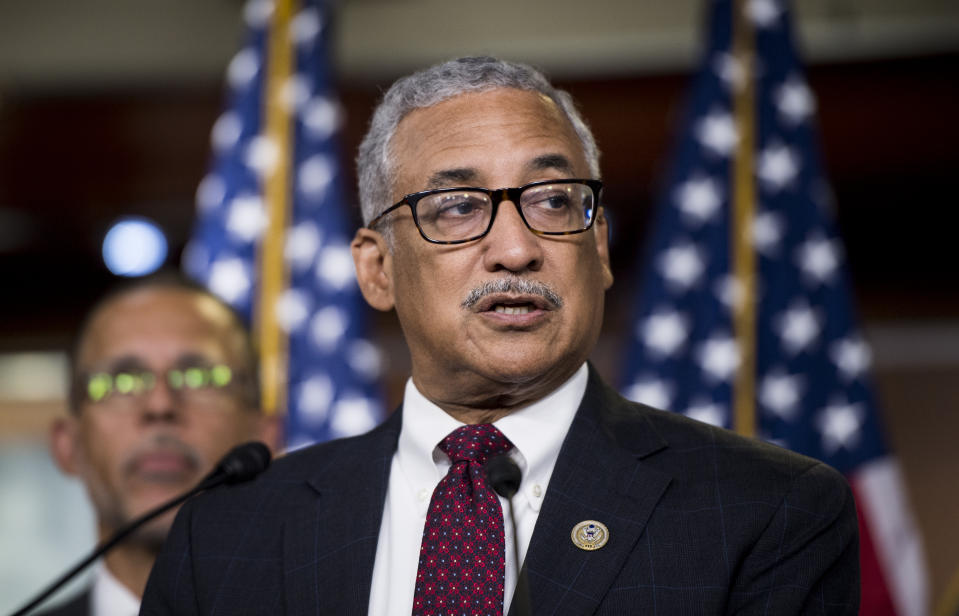
Shierholz argued that a higher federal minimum wage would help workers while actually leveling the playing field for businesses.
“When [business owners] think of a $15 minimum wage, there’s this tendency to think about what that would be like if I had to tomorrow raise my wages to $15 an hour alone without thinking about it. Everyone, all businesses, will face the same rules so it’s not going to put me at a competitive disadvantage.”
Adriana is a reporter and editor for Yahoo Finance. She can be reached at adriana@yahoofinance.com. Follow her on Twitter @adrianambells.
READ MORE:
'It is time to send a message': Bernie Sanders plan takes aim at CEO pay
'A national problem': U.S. housing affordability is out of whack with minimum wage
Read the latest financial and business news from Yahoo Finance
Follow Yahoo Finance on Twitter, Facebook, Instagram, Flipboard, SmartNews, LinkedIn, YouTube, and reddit.

